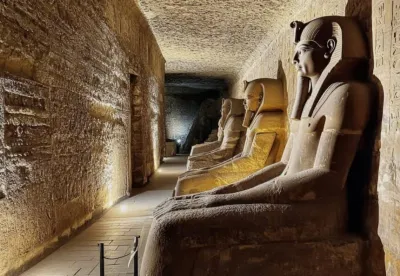
Egypt's Prime Minister, Moustafa Madbouli, announced that the UAE will invest $35 billion directly into the heavily indebted country. ADQ, Abu Dhabi's sovereign wealth fund, has confirmed that most of this investment will develop Ras el-Hikma, a global tourist destination city on the Mediterranean coast.
These investments are part of the national urban development plan called "Egypt 2052," specifically aiming to develop the northern coast and transform Ras el-Hikma into a world-class tourist destination.
The Egyptian government relies on foreign investment to tackle its foreign exchange crisis. The country is struggling to repay its foreign debt, which currently stands at almost $165 billion. Recently, a $35 billion deal was signed between Egypt and the UAE. The agreement will see $15 billion paid within a week and $20 billion paid two months later. The Abu Dhabi sovereign wealth fund, ADQ, will also purchase the development rights to Ras El-Hikma for $24 billion. The project will be one of the largest new cities developed by a private consortium. Some $11 billion will also be spent on investments in "leading projects across Egypt.
Ras el-Hikma is a location situated 350 kilometers northwest of Cairo. ADQ has plans to develop it into a global tourist destination, financial center, and free zone. This development is aimed at enhancing Egypt's economic and tourism growth potential. President Abdel Fattah al-Sisi has prioritized the country's development, but economists criticize megaprojects such as new cities, high-speed trains, bridges, and roads. According to them, these projects have only drained the state's coffers and tripled the country's debt.
Egypt is currently facing a high risk of default on its debts, trailing only Ukraine regarding vulnerability. This is causing concern among experts, as revenue from tourism has been declining for years, and Yemen's Houthi rebels have been launching attacks in the Gulf of Aden and the Red Sea, causing a decrease in dollar earnings from the Suez Canal, which is an essential passage for global trade.
Furthermore, remittances from Egyptian workers abroad, which generate far more income than the tourism sector and Suez transit fees, fell by approximately 30% during the first quarter of 2023-2024.
The IMF (International Monetary Fund) granted Egypt a $3 billion loan in late 2022 to address these challenges. However, loan tranches and program reviews were repeatedly postponed until Cairo implemented economic reforms, including a "fully flexible exchange rate," as requested by the IMF.











